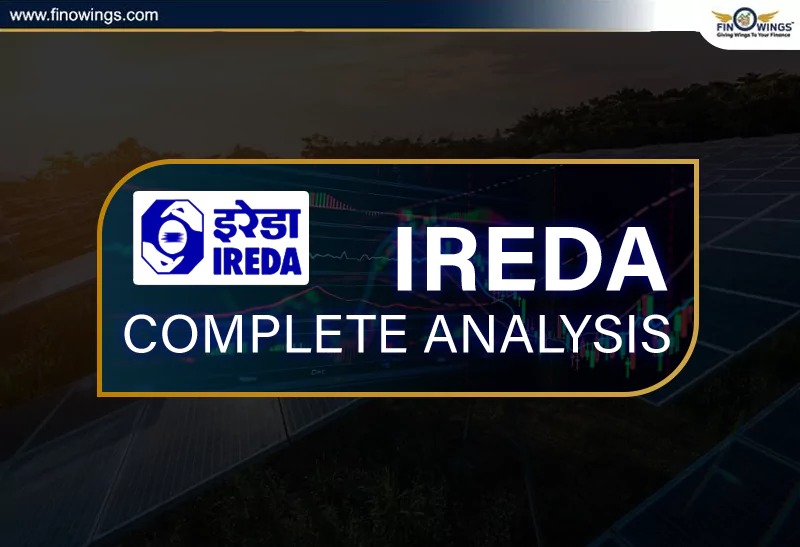Home >> Blog >> Jai Prakash Associates Ltd: Story from High to low and Recovery
Jai Prakash Associates Ltd: Story from High to low and Recovery

Table of Contents
In the world of stock markets, some companies rise to greatness, while others experience dramatic falls from grace. One such company that has recently captured the attention of investors is Jaiprakash Associates Ltd. This Noida-based conglomerate was once a powerhouse, dominating a variety of industries, from power and cement to infrastructure. However, its fortunes have taken a nosedive, with its share price plummeting from a high of 332 to a mere 18 rupees. At its lowest point, its shares even traded at just 1 rupee.
So, what has caused this dramatic decline, and why is Jai Prakash Associates suddenly seeing a surge in its stock price, despite being in the red? We'll explore this in-depth and also provide a unique perspective on analyzing companies in this blog.
The Story of JP Associates
JP Associates is primarily involved in Engineering & Construction, Cement Manufacturing, Power, Real Estate Development, Hospitality, and more. Its revenue is segmented as follows:
- 43.63% from Fertilizers
- 36.32% from Construction
- 11.48% from Real Estate
- 4.81% from Hotel and Hospitality
- 3.76% from Other Segments
The company's revenue from construction and real estate sectors was once its bread and butter, but when these sectors faced a crisis in 2008, JP Associates saw its fortunes take a hit. The 2008 global financial crisis and subsequent recession took a toll on many companies, but those in construction and real estate were hit especially hard. While some recovered, JP Associates remained in a slump.
But here's where it gets interesting. The company's decline is not solely due to market conditions; it has a lot to do with its close ties to the government. Companies that have favorable relations with the government tend to receive preferential treatment, and JP Associates is no exception.
Detailed Video
The Impact of Government Relations
In 2014, a significant change in government resulted in JP Associates' downfall. The majority of its business was in sectors that required significant capital and were heavily influenced by government policies. As the government support waned, the company's order book dried up, projects stalled, and loans became hard to come by.
Despite efforts to recover, JP Associates never managed to regain its former glory. The company sank deeper into debt, and its net worth turned negative. In FY22, the company had a massive debt of 19,097 crores. Financial institutions restructured its loans, and banks and financial companies began extracting their investments from the company's assets.
The Recent Rally
Despite its troubled history, JP Associates has seen a recent surge in its stock price. Three main factors appear to be driving this:
1. News of Adani Group's Interest: There were rumors of Adani Group considering the acquisition of JP Group's cement business, which temporarily boosted JP Associates' stock. Although this deal did not materialize, it created positive sentiment.
2. Improved Quarterly Results: The company managed to reduce its losses, thanks to other income and asset sales. While still in the red, the reduced losses generated optimism.
3. Upcoming Board Meeting: The JP Associates board has a meeting on November 9, 2023, to discuss disinvestment plans. If these plans succeed, the company will receive funds, which can be used to reduce debt or complete pending projects.
In addition to these factors, the upcoming election may also be fueling optimism. Investors may hope for a change in government, which could benefit JP Associates.
Final Thoughts
JP Associates' recent rally is largely based on assumptions and sentiment, as there is no solid fundamental basis for the surge. Despite the company's troubled financials and debt-ridden state, these factors have driven its stock price up.
The company's holding pattern shows that promoter holding has not increased, but FII and DII holdings have slightly risen. While it's an interesting case, caution should be exercised when investing in such stocks with a heavy reliance on government support.
In conclusion, JP Associates' story serves as a unique case study of how government relations can heavily influence a company's performance. As investors, it's crucial to understand the broader economic and political context when assessing a company's prospects in the stock market.
Liked this analysis? Stay tuned for more insights on intriguing companies and market trends. Don't forget to like and share this blog for more engaging content.


















Venugopala Rao | Posted on 09/11/2023
Great analysis sir